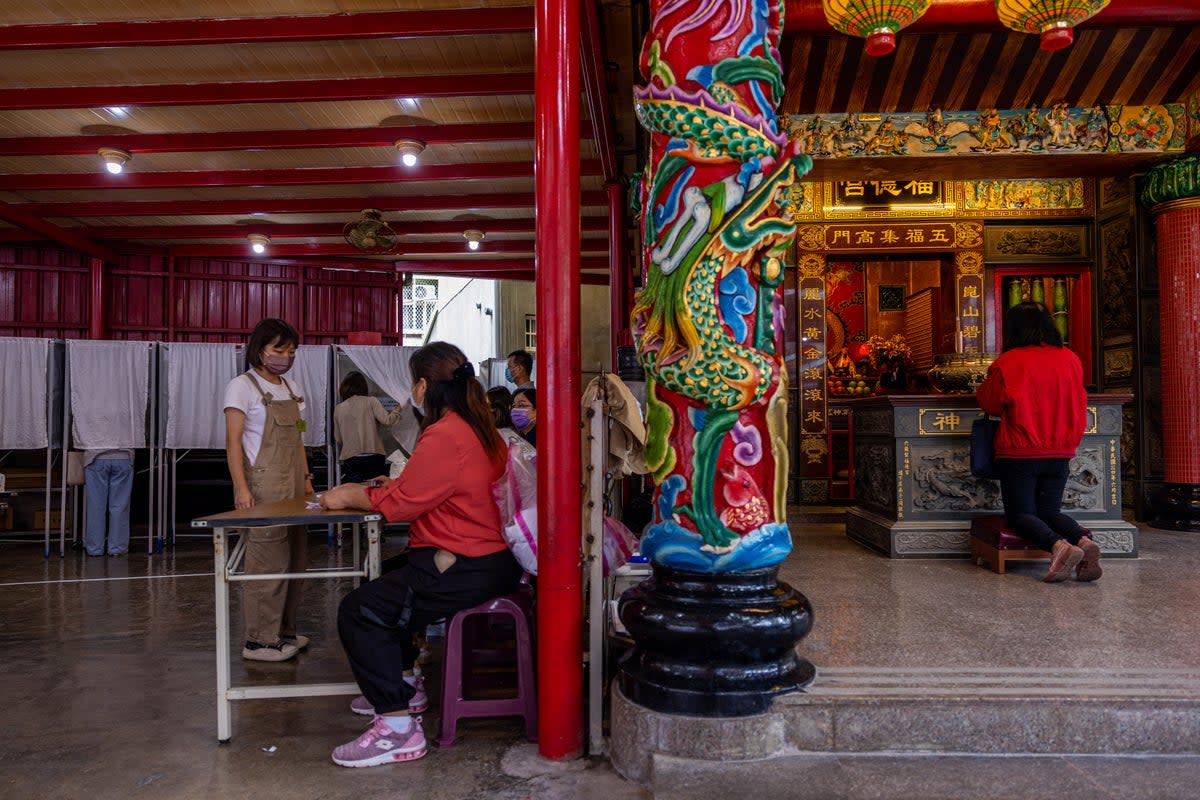Taiwan goes to polls for local elections amid looming threat of China ‘reunification’

Voters in Taiwan cast their ballots on Saturday in local elections for mayors, county chiefs and local councillors, with president Tsai Ing-wen urging citizens to send a message to the world about the island’s commitment to democracy.
While such regional elections normally focus on domestic issues such as Covid-19 and local crime rates, and those elected on Saturday will have little direct influence on Taiwan’s policy towards the Chinese mainland, Ms Tsai told supporters the context of heightened tensions with Beijing could not be ignored.
Recently handed an unprecedented third term as Chinese president, Xi Jinping has made “reunification” with Taiwan one of his top priorities and said previously that he would achieve this through force if necessary.
Although China views Taiwan as a breakaway province, the island has been self-ruled since the civil war in the late 1940s and enjoys many democratic freedoms and civil liberties that the mainland does not.
“Taiwan is facing strong external pressure,” Ms Tsai said on Friday before polling stations opened. “The expansion of Chinese authoritarianism is challenging the people of Taiwan every day to adhere to the bottom line of freedom and democracy.”
Ms Tsai said the world was watching how Taiwan could defend its democracy in the face of China’s active displays of military might and the raised geopolitical tensions in the region.
Results from Saturday’s polling are expected to be clear by early in the evening of the same day.
The main opposition party in Taiwan – the Kuomintang (KMT) – has accused the Taiwanese president and her Democratic Progressive Party (DPP) of inviting a confrontation with Mr Xi and the Chinese Communist Party. The oldest political party in Taiwan, also known as the Chinese Nationalist Party, has backed closer ties with Beijing, but strongly denies wanting ultimately to cede control to the Xi administration.
The KMT chief said: “We advocate being close to the United States, friendly with Japan and having peace with the mainland. Let Taiwan have a prosperous future of peaceful and stable development,” as he addressed his supporters on Friday.
These elections are being seen as a litmus test for the popularity of the ruling DPP as the KMT turns to younger candidates, including the grandson of former Chinese president Chiang Kai-shek, Chiang Wan-an, to turn the tide of its electoral fortunes. Mr Chiang is one of the favourites for the Taipei mayoral race.
The elections on the island come a month after Beijing held the 20th congress of the Chinese Communist Party, which saw Mr Xi return for a historic but widely expected third term in office, and a few months after tensions in the region dramatically spiked around the visit of US House speaker Nancy Pelosi.
China carried out its largest-ever war games in August around Taiwan, part of an angry response to a high-level congressional visit led by Ms Pelosi.
Both major parties – the KMT and the DPP – have focused their campaigning on the wealthy and populous northern Taiwan region, especially Taipei. One way or another the capital is set to bid farewell to its mayor, Ko Wen-je, who has served the maximum two terms.
As well as electing local leaders in all 13 counties and in nine cities, citizens on Saturday were also deciding on a referendum to lower the voting age from 20 to 18 – a move that was seen as popular and likely to succeed after it received the backing of both main political parties.


